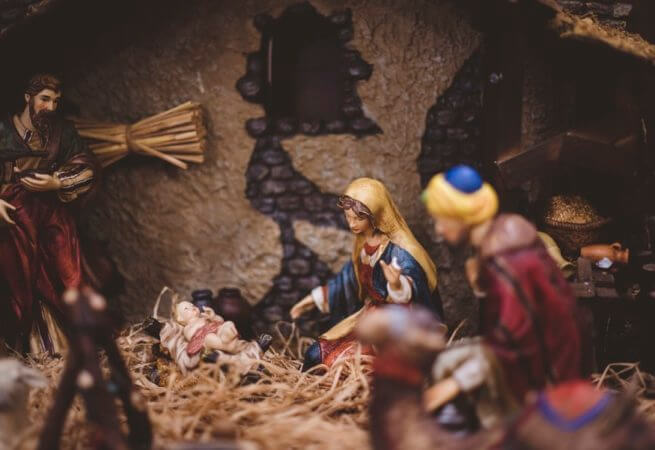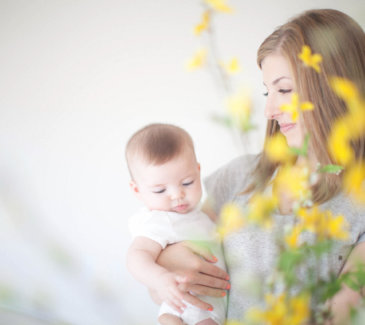I distinctly remember standing outside on my late grandmother’s home patio when my brother asked me if we set off fireworks only on Christmas Eve, New Year’s Eve, and Independence Day.
The last time he had experienced Christmas in the United States was when he was eight years old. His freshman year in college was teaching him a lot of new things about culture and tradition. I had arrived four years before him, after graduating high school in Honduras, and I laughed at his question.
But, I also distinctly remember his question because it was a good reminder of how culture and tradition interplay in our personal celebrations.
My bicultural lens
Looking at the Bible, there is no reference for if or how Christmas should be celebrated. In our Christian homes, many of us fuse Christian cultural tradition with our understanding of what took place on that blessed day.
Thinking through how culture affects our traditions and experiences, I am led to consider what might I be missing through my own cultural, or bicultural, lens that other cultures might answer or showcase as they remember our Savior’s birth.
While this Christmas holiday will be different in many ways due to COVID-19, I would also like to suggest that it might be a perfect time to spice up our annual holiday traditions and discover how other cultures, countries, and people groups celebrate the birth of our Savior.
When I take my children or students to other countries, I tell them to witness and think through how the people of that country experience God. How do their daily lives reflect their knowledge of him? How does their knowledge of him affect their daily lives? How do they focus on and celebrate him? How do they rely on him?
Expanding our understanding of traditions this Christmas season will undoubtedly allow us new experiences with God in this same way.
Blending Christmas traditions
Growing up in Honduras as a missionary kid, my parents did a great job of mixing cultures.
We took the large extended family meal on Christmas Eve from the Honduran tradition and mixed it with the American tradition of opening presents on Christmas morning, instead of on Christmas Eve, like my Honduran friends.
While I longed for more presents for Día de los Reyes Magos, we did grow up understanding its relevance and importance, biblically and culturally. It has been years since I lived in Honduras, but I only have to look across and down my street at the neighbors who fill up houses with Romanian, Indian, Haitian, and Japanese traditions.
As they have learned how to blend their children’s Christmas traditions, combining both their birth and home countries’ ways of celebrating, I think how beautiful it would be for all children to better understand the beauty of cultural traditions and how these celebrations can help us better understand and experience God.
A northern India tradition
Talking to a friend of mine who is culturally from northern India, I loved to hear that she grew up celebrating Christmas with a big family dinner on Christmas Eve where everyone received their Christmas present of new clothes.
After the dinner and gifts, they prepared their new clothes for church the next morning, which started at 4:30 a.m. Clothes were the only gifts given, and attending church was extremely important.
Another important aspect she shared is that if someone in the family passed away during the year, all large celebrations of holidays for one year would be canceled in order to remember and honor the legacy of the family member.
The Watch Night service
Christmas isn’t the only holiday to learn more about other cultural traditions.
Six years ago, the Lord brought my family to a predominantly African American church where we have found family, community, and an incredible ministry. Our first holiday season there, I remember the excitement and curiosity I felt when I heard the discussion about the Watch Night service. I had never heard of New Year’s Eve celebrated this way, and I was curious to know its history and traditions.
As I began the research, I learned that, while Watch Night services were first experienced in the 1770s as a way to think through one’s personal covenant with God, they gained importance in the African American community on December 31, 1862.
Many enslaved Africans and African Americans gathered in churches that night to pray, celebrate, and give thanks to God as they anticipated Lincoln’s enactment of the Emancipation Proclamation on January 1, 1863.
What an incredible night that must have been!
And, what a wonderful tradition to continue celebrating all these years later, something to pass down from generation to generation. For all believers, the Watch Night service is a great remembrance of the emancipation of our souls!
On earth as it is in heaven
As we go into this holiday season, consider visiting, virtually or in person, a culturally diverse church with your children.
Prepare them before going by explaining that you are going to learn more about Jesus and how other people celebrate his birth. Consider attending a Watch Night service at an African American church on New Year’s Eve around seven in the evening to celebrate, pray, and give thanks for all God has done.
Visit with neighbors who come from different backgrounds to hear how and why they celebrate in distinct ways. As you do, think through what family traditions you should maintain as part of your family’s legacy and what new traditions should be considered as we all seek the miraculous experiences of being children of God.
While heaven will be beyond imagination as all tribes and nations celebrate together, why not begin with here on earth as it is in heaven?



